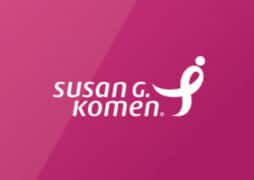Susan G. Komen® Commends Bill Introductions; Urges Quick Passage
PHEONIX – Susan G. Komen®, the world’s leading breast cancer organization commends Representative David Cook (R-Globe) for working with Komen to eliminate financial barriers to earlier breast cancer detection by ensuring that everyone has equitable access to diagnostic and supplemental breast imaging.
In Arizona more than 6,830 people will be diagnosed with breast cancer and 950 are expected to die of the disease in 2024 alone. The exorbitant out-of-pocket costs associated with essential breast imaging procedures ranging from hundreds-to-thousands of dollars, often force individuals into the difficult decision of skipping these tests or making significant financial sacrifices.
“Nobody should have to forego a test that helps to rule out breast cancer or confirm the need for a biopsy because of the cost, yet thousands of people in Arizona are doing it every year,” said Molly Guthrie, Vice President of Policy and Advocacy at Susan G. Komen. “This bill will provide pivotal access to diagnostic and supplemental imaging so that individuals can get the care they need without having to endure undue financial burden. It is an important step toward equitable access to care, potentially saving lives by facilitating early detection and treatment.”
House Bill 2411, introduced by Rep. Cook, eliminates the patient out-of-pocket costs for medically necessary diagnostic and supplemental breast imaging including MRIs, ultrasounds, and diagnostic mammograms. While no-cost mammograms are currently available to women, when a mammogram reveals an abnormality, diagnostic and supplemental imaging is necessary to give medical providers a closer look at the abnormality and determine if a biopsy is needed. The high out-of-pockets costs for the follow-up imaging deters many individuals in Arizona from getting it, and as a result, breast cancer can be diagnosed at a later stage.
“There is no doubt that early detection and diagnosis of breast cancer saves lives. It is critical that Arizona eliminates financial barriers that limit access to critical diagnostic and supplemental breast imaging service,” said Rep. Cook. “Breast cancer impacts too many families, including my own. We have a responsibility to make sure individuals in Arizona have every tool available to them to diagnose breast cancer at early stages, when it is still treatable.”
An estimated 12% of individuals are called back for additional imaging after an abnormal screening mammogram and require diagnostic imaging. This diagnostic or supplemental imaging is often crucial for individuals previously diagnosed with breast cancer or those considered high-risk. The cost creates inequities in care and imposes additional financial barriers for these patients.
Despite significant advancements in breast cancer screening and diagnostics over the past 30 years, disparities persist across demographics. Evidence shows that Black and Hispanic breast cancer patients tend to be diagnosed at a later stage, potentially due to delays in follow-up imaging after abnormal findings on an annual mammogram.
A Komen-commissioned study found out-of-pockets costs for patients to range from $234 for a diagnostic mammogram to more than $1,000 for a breast MRI. Additionally, a recent study published in Radiology found that 1 in 5 patients said they would not go in for recommended follow-up imaging if they had to pay a deductible.



